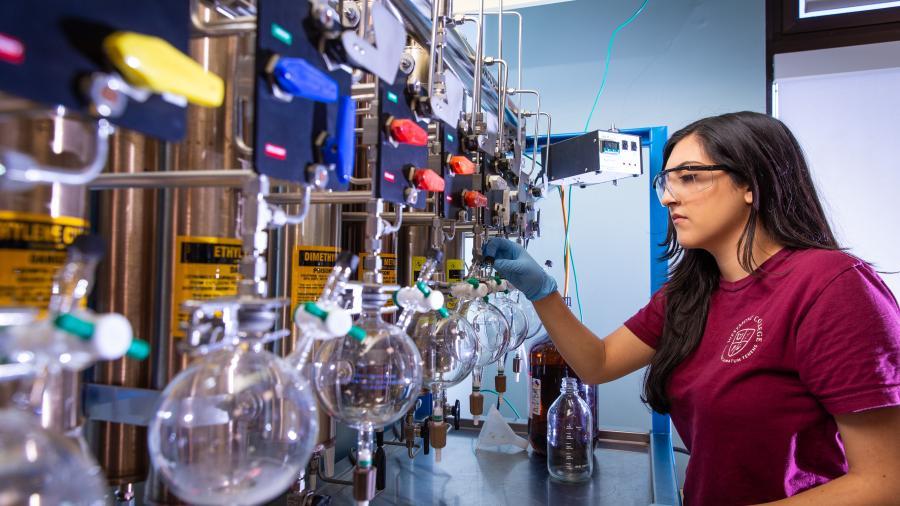Westmont Magazine A Chemist Considers the Liberal Arts

Stephen Contakes describes himself as a STEM scholar (science, technology, engineering and mathematics) interested in advancing the LIBERAL ARTS. The chemistry professor doesn’t think Richard Detweiler’s dichotomy between the LIBERAL ARTS and technical training is entirely fair. “It’s not one or the other for our chemistry students,” he says. “They benefit from our LIBERAL ARTS curriculum and receive top-quality professional training at the same time.”
STEM disciplines can function as LIBERAL ARTS with an emphasis on sound thinking, right living and social responsibility, Contakes says. He notes conceptual and methodological parallels between chemistry and other LIBERAL ARTS disciplines with science making sense of the physical world just as the humanities explore and explain literature and the arts.
“In chemistry, we raise important questions about the world that we implicitly answer,” Contakes says. “Take examples like pollution, climate change or how we use energy. Chemists are deeply involved in these issues. Through the Christian liberal arts, we see what we do as chemists in relation to human society and learn how to think deeply about it. We consider how we’re called to engage our culture and what work God calls us to do. We have graduates working in many industries as well as doing basic research, and we see a need for Christians in all these areas to model the gospel and promote human flourishing.
“STEM disciplines emphasize broadly integrated learning, the ability to promote self- reflection and the development of critical thinking, communication and interpersonal skills, all considered uniquely the province of the LIBERAL ARTS. The net effect of STEM fields is generally considered to be a massive increase in human knowledge accompanied by an equally dramatic increase in the standard of living. So while it’s important to be circumspect about how science can be misused in a world marred by sin, overall the STEM disciplines exemplify the potential of human intellectual achievement and its social benefits.
“Liberal arts interdisciplinary approaches also acknowledge that different disciplines should work together using different methods and viewpoints to fruitfully probe different aspects of reality and human experience.
“Science’s achievements have come in part because it limits itself to describing nature’s behavior and explaining phenomena in terms of efficient causes. It’s ill-suited for answering questions about purpose and meaning in the universe. Nevertheless, science’s insights often raise interesting philosophical and theological questions.
“Science encounters questions it can’t answer, such as: why are we here? Why do suffering and evil exist? Why is the world structured the way it is? What is the meaning and purpose of our lives? How does being a chemist fit into all the other things we do? The Christian LIBERAL ARTS address these issues and give students the breadth of perspective and experience they need to navigate such questions robustly throughout their lives. You get better answers with a breadth of study and experiences than by equipping people narrowly.”
